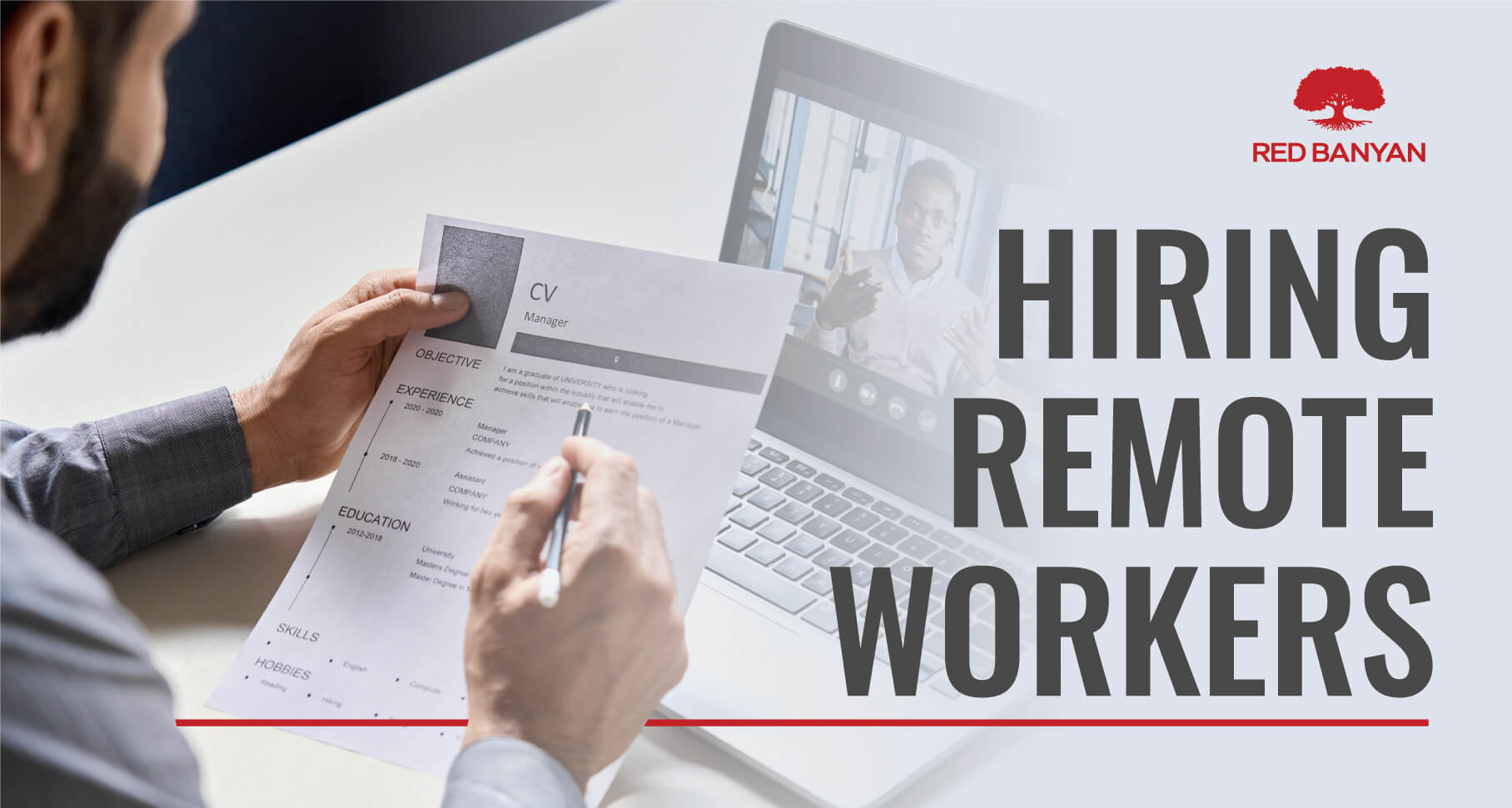7 Considerations When Hiring Remote Workers
November 23, 2021 | Category: Blog, Careers, Florida Public Relations, News, Public Relations

By Robbin Lubbehusen
Companies that hired remote workers during the COVID-19 pandemic have discovered that remote workers provide added value, greater perspective and more flexibility. They also require more work.
The pros, however, far outweigh the cons.
Companies that once resisted remote hiring are now doing business via video calls with employees stationed in different time zones, and sometimes even different countries. Statistics show that remote work arrangements have jumped from 5 percent of the pre-pandemic workforce in the United States to more than 60 percent, a huge change that has also affected hiring practices.
But hiring remote workers who meet company expectations may require you to tweak your interview techniques and switch up your questions to make sure your job candidates fit into your business’s culture. There’s also more work involved when an organization’s employees reside in different states.
Here are 7 points to consider when hiring remote workers:
- Make sure your job descriptions are up-to-date and precisely worded. Hiring good employees requires time and money so invest wisely. Indicate clearly if the job can be remote, and then determine which platforms are most appropriate to advertise your search.
- Be ready to spend time sorting through applications. No matter how specific your job description, you will likely receive a landslide of submissions from the unqualified. Screening job applications is tedious but necessary. Investing significant time on the front end greatly improves your chances of producing a positive end result.
- Ask questions that highlight qualifications, as well as interests. You want to select a candidate who has the skills you need and is also interested in doing the doing the job you have to offer. Hire someone who has the required talent and the interest to remain engaged. Does the job candidate like doing the tasks that are inherent to the job? Ask the job candidate what type of things he or she enjoys doing professionally and at what they excel. Also ask the applicant what he or she would like to do better and what types of things they are no longer interested in doing professionally. If the job candidate is good at the essential job qualifications and enjoys doing the essential tasks, then the job might be a good fit.
- Hiring remotely can be costly. Every time you hire a remote worker in another state, you have to register in that state so you can pay state taxes, unemployment taxes and withholding taxes. Setting up business in other states adds costs.
- Onboarding remote employees requires additional effort. Remote employees may not step foot in your office, so you have to work harder to make sure they feel connected, welcomed and part of the team. Some companies hold short, mandatory daily meetings to make sure everyone knows what is going on, is on the same page and has their marching orders. Such meetings promote company unity and help employees feel more connected to each other.Anther way to help remote employees connect is by encouraging existing employees to meet one-on-one with them virtually so they can find out more about one another. Retaining new hires requires making sure they feel connected.
- Virtual interviews save time and money. Hiring managers can conduct more virtual interviews in less time than it takes to set up and execute in-person interviews. What’s more, in-person interviews are often fraught with cancellations and reschedules, which are much more difficult to accommodate.
- Remote workplaces are working! According to PwC’s January 2021 US Remote Work Survey, 83 percent of employers surveyed say the shift to remote work has been successful for their company, compared to 73 percent in PwC’s June 2020 survey. Remote workers often enjoy greater work/life balance with more personal time and money because they do not have to commute or invest in work clothes. One study showed workers to be 13 percent more productive working from home due to less distractions.
Hiring remote workers can expand your potential talent pool, provide opportunity for greater flexibility, promote work/life balance and enable your company to continue operating in less-than-favorable circumstances. But transitioning successfully to a hybrid or fully remote business model requires planning and extra effort to create connectivity.
Robbin Lubbehusen is the Chief Operating Officer for Red Banyan. She has more than two decades of experience directing fiscal, administrative and program operations, with expertise in business process improvement.

